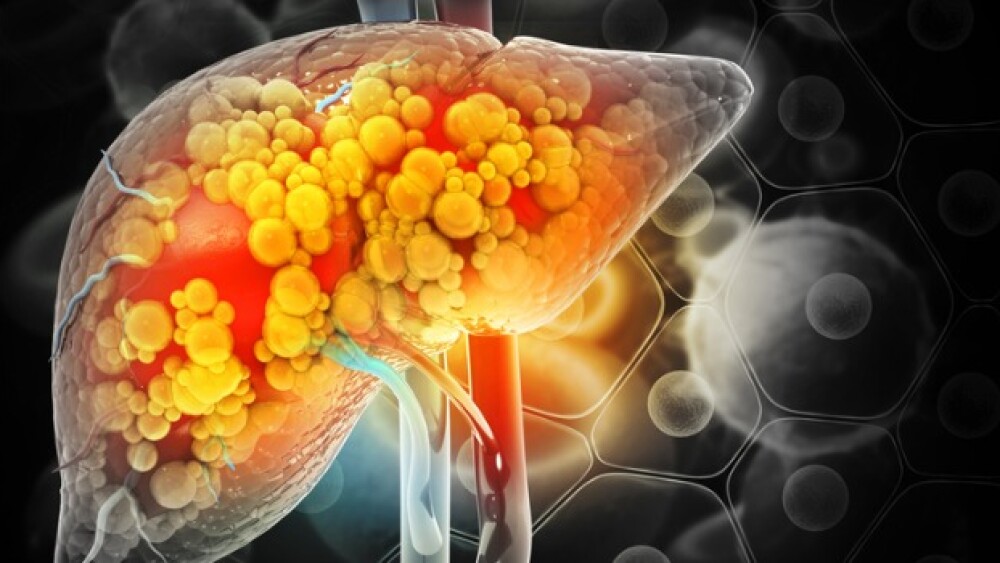Viking Therapeutics’ nonalcoholic steatohepatitis candidate VK2809 significantly improved secondary histologic endpoints at 52 weeks with no worsening of fibrosis, as assessed by hepatic biopsy.
Viking Therapeutics on Tuesday released additional data from its Phase IIb VOYAGE study, showing that its investigational thyroid hormone beta receptor agonist VK2809 could significantly improve histologic outcomes in patients with nonalcoholic steatohepatitis.
At 52 weeks, 63% to 75% of patients treated with VK2809 achieved resolution of nonalcoholic steatohepatitis (NASH) without the worsening of fibrosis. Meanwhile, only 29% of placebo comparators achieved this endpoint, with the effect being statistically significant in favor of the investigational treatment.
In addition, 51.9% and 56.8% of patients given 5-mg and 10-mg VK2809 every other day saw at least a one stage improvement in fibrosis, compared to 34.1% in the placebo group. These treatment effects reached statistical significance with p-values of 0.0304 and 0.0497, respectively.
William Blair analyst Andy Hsieh in a note to investors called the fibrosis improvement “the most impressive upside surprise” from Tuesday’s data drop, despite the study being underpowered for this endpoint.
Fibrosis is the “best proxy” for long-term NASH outcomes, such as disease progression and death, Hsieh said. “In our view, demonstrating statistically significant fibrosis improvement … further differentiates VK2809 in the [NASH] space and elevates the compound as exhibiting the best-in-class potency among the oral modality.”
The fibrosis outcome could help VK2809 differentiate itself from Madrigal’s Rezdiffra (resmetirom), which became the first FDA-approved NASH treatment in March 2024. According to Hsieh, Rezdiffra was “unable to accomplish” fibrosis improvement in Madrigal’s Phase II trial.
Despite the strong efficacy profile and potential competitive edge, Viking’s shares slipped 15% after the data drop, which Hsieh attributed to the “lack of imminent catalysts and the capital and time investment required for a large global Phase III program.”
In an investor call, CEO Brian Lian said that the company will meet with the FDA later this year to discuss the next possible steps for VK2809.
Designed to have high selectivity for liver tissue, VK2809 is an oral drug candidate that activates the thyroid hormone beta receptor. This mechanism of action boosts the expression of genes involved in lipid metabolism and clearance, improving cholesterol and lipoprotein levels.
Tuesday’s data drop follows a May 2023 readout from VOYAGE, which showed that VK2809 cleared the trial’s primary endpoint, resulting in a significant drop in liver fat.
Stiff competition—from Rezdiffra and other pipeline candidates such as Eli Lilly’s tirzepatide—also contributed to Tuesday’s lukewarm investor reaction, according to Hsieh. In its full-year 2023 business report, Lilly posted 52-week data from a Phase II study showing that tirzepatide resolved NASH without worsening of fibrosis in 74% of patients, as opposed to 13% of placebo comparators.
Novo Nordisk’s semaglutide has also been assessed for NASH, showing disease resolution without worsening of fibrosis in as many as 59% of patients.
Tristan Manalac is an independent science writer based in Metro Manila, Philippines. Reach out to him on LinkedIn or email him at tristan@tristanmanalac.com or tristan.manalac@biospace.com.






